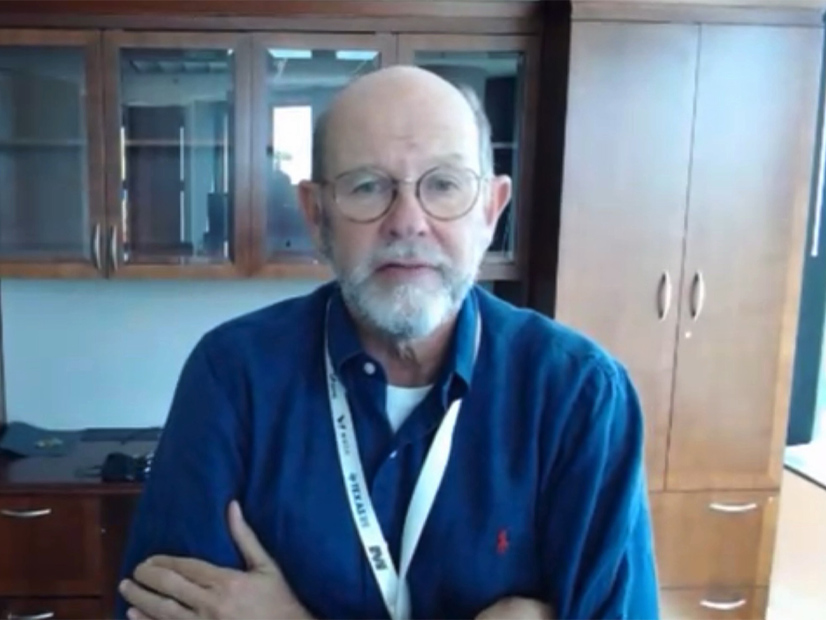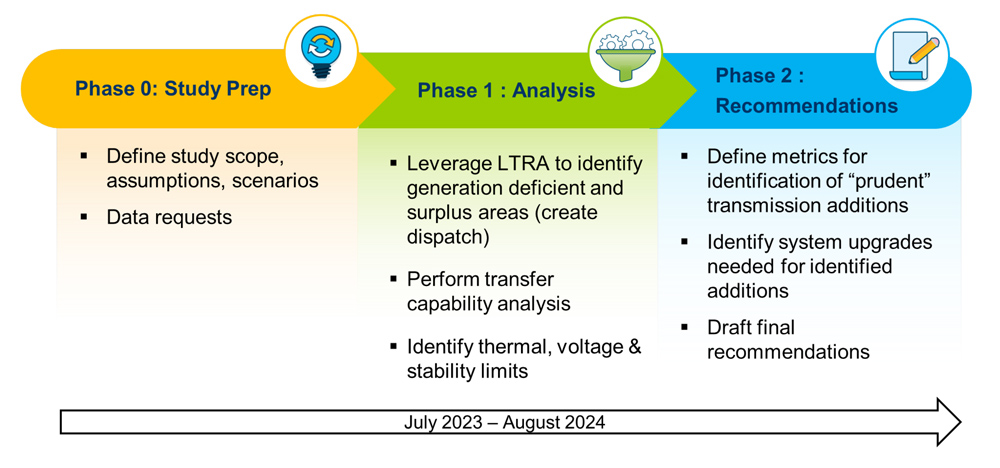In a special meeting Wednesday, NERC’s Finance and Audit Committee agreed to a preliminary plan that will allow the organization to fund a two-year study on interregional power transfer capability ordered by Congress last month.
Congress mandated that the ERO perform the study as part of the Fiscal Responsibility Act. (See Lawmakers, White House Promise More Work on Permitting After Debt Deal.) The FRA requires that NERC, in consultation with the regional entities, deliver to FERC by December 2024 a study that examines:
-
- The current total transfer capability between each pair of neighboring transmission planning regions;
- Recommendations of “prudent additions” to total transfer capability that could strengthen grid reliability; and
- Recommendations to meet and maintain total transfer capability together with such recommended additions.
The FAC’s approval of the plan means the ERO will not have to order a special assessment to pay for the part of the study’s costs that will be incurred this year if FERC agrees to the proposal, which is required because it calls for drawing from NERC’s financial reserves. Staff said they intend to submit the plan to FERC by the end of this week.
Speakers at Wednesday’s meeting acknowledged that Congress’ order would force NERC to defer some projects and planned hiring for 2023 and 2024. At the same time, NERC CEO Jim Robb expressed pride that the ERO had been chosen to conduct a study he called “unprecedented” due to its scope and called NERC “the ideal organization to be conducting this assessment.”
“I think the reason this came to NERC is that we’ve had a long history of highlighting the need for more infrastructure, including transmission and … natural gas pipelines, in all of our reliability assessments, and our independent voice for reliability … is very, very important here,” Robb said. “This challenge is only going to grow if we don’t address it in a timely, well-thought-out manner, and in conjunction with the work that we’ve been asked to do on extreme weather and environmental conditions. It all needs to be pulled together.”
The project is in what NERC staff called “Phase 0,” for defining the study scope, assumptions and scenarios. Phase 1 — when the ERO and its partners will identify areas with deficient and surplus generation, perform the transfer capability analysis and identify thermal, voltage and stability limits — could begin as early as next month if FERC grants approval. NERC hopes to produce its draft recommendations by next August.
According to the resource plan presented Wednesday, NERC will need to hire four technical staff members — a project manager, an engineering manager and two engineers — along with a communications professional. Also, outside consultants will be required to provide “executive leadership” and public affairs support, along with helping perform the study itself.
Paying for the study will require revising NERC’s 2024 business plan and budget, a draft of which the ERO published before Congress passed the FRA. (See Personnel, Meeting Costs Drive 2024 ERO Budget Hikes.) CFO Andy Sharp told attendees the study’s effect on the 2024 budget and assessment still is being evaluated but that the FAC should be ready to provide an updated budget to the Board of Trustees at its meeting in Ottawa next month.
To cover the costs of the study this year, NERC has reprioritized its 2023 work plan to free up its cash flow. This includes deferring several projects planned for this year, including a special assessment on new and evolving electric market practices and studies on geomagnetic disturbances, cybersecurity risks and environmental impacts. NERC also will defer until 2024 plans to fill three open positions in bulk power system awareness, engineering and security, and standards.
However, Mark Lauby, NERC’s senior vice president and chief engineer, assured listeners the organization would work to minimize the effects of these changes by incorporating some of the work of the deferred projects into other work areas. For example, Lauby said some of the planned assessment on market practices can be captured in NERC’s Long-Term Reliability Assessment this year, while other aspects of the assessment can be incorporated into the transfer study itself.
After deferring these costs, NERC estimates it will need an additional $700,000 to pay the estimated study costs this year. Sharp said the organization intends to draw the money from its Assessment Stabilization Reserve (ASR), which stood at $3.3 million at the end of 2022. Funding the study from the reserve, coupled with the deferred work, means NERC will not need to call for a special assessment in 2023.
The proposal drew unanimous approval from FAC members, with Trustee Bob Clarke calling the use of the ASR “a very appropriate [and] creative way to … use the funds that we have available” to minimize the impact on registered entities this year.
Trustee Sue Kelly concurred with Clarke, adding that using the ASR was especially appropriate because the reserve is funded by penalties on U.S. entities. Therefore, tapping these funds would “mute the impact on our Canadian brothers and sisters,” which seemed fair because the study was ordered by the U.S. government without Canada’s involvement.





